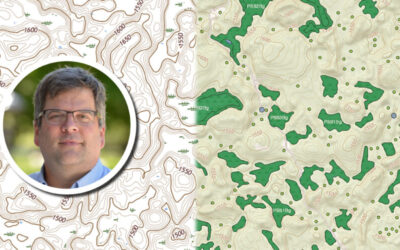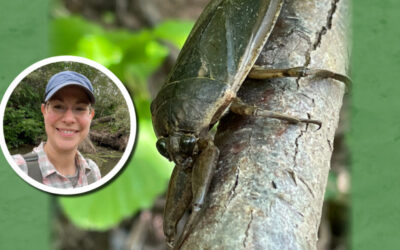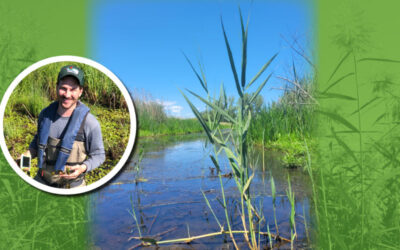Wetland Coffee Break
The Wetland Coffee Break series helps keep our community of wetland lovers connected and learning about wetlands throughout the year, from anywhere! Bring your coffee and learn about wetlands, the plants and animals that call them home, and the many natural benefits they provide to our communities. Sessions are held on Zoom and feature time for audience Q&A.
See below for a list of upcoming presentations and to register. Once you register, you’ll receive an automatic email including the URL link and password you’ll need to access the meeting. We record and post each presentation so you can watch any that you missed live. You’ll find links to these recordings below, and you can also find them on our Facebook page.
We are grateful to all of the presenters for sharing their knowledge and expertise and to everyone interested in learning more about wetlands! If you are interested in giving a Wetland Coffee Break presentation, or if you have a wetland topic you’d like to see covered, please contact Katie.Beilfuss@wisconsinwetlands.org.
We are now able to provide attendance verification to Wetland Coffee Break audience members who attend the live sessions and request this service. We created this mechanism in response to requests from members of the Wetland Coffee Break audience who would like to apply their Wetland Coffee Break learning to their continuing education or certification requirements. Learn more about how to receive attendance verification here.

Register for a Wetland Coffee Break
The Wetland Coffee Break is on winter break, back in 2026. Check back in later this winter for upcoming programs, and subscribe to our every-other-week Wetland News email to get our calendar of events, which includes Wetland Coffee Break episoded. Meanwhile, consider attending the 2026 Wetland Science Conference, happening Feb. 24-26 in Baraboo/Wisconsin Dells, for more great information about wetlands.
Watch previous presentations
Click “Older Entries” below to see more past presentations, or view our Google Sheet index of past presentations here.
Wetland Coffee Break: Wetlands in Wisconsin’s mega moraines
One of the largest concentrations of wetlands in our state is found in a unique area of large hummocky moraines that spans across north-central Wisconsin.
Wetland Coffee Break: On, in, and underwater: Life cycles and life history of wetland invertebrates
Join Dr. Jessica Orlofske of UW-Parkside to learn about Wisconsin’s wetland invertebrates that skate on the surface, swim in the water column, or crawl along the substrate.
Wetland Coffee Break: Wetlands and Phragmites: Management at a landscape scale
Presenter Matt Puz discusses wetland dynamics as well as Phragmites biology and ecology, and how understanding these two concepts can lead to more effective management.
Wetland Coffee Break: Restoring wetlands in the Mukwonago River watershed
Hear about the the experience of project planning, restoration, and maintenance of the Mukwonago Davis Restoration Project, and the trials and tribulations of implementing a large wetland restoration project through key partnerships.
Wetland Coffee Break: Let’s talk turtles!
Ever wonder what kind of turtle you just found crossing the road, or how to tell one kind of turtle from another, or where to look to find them?
Wetland Coffee Break: What’s the buzz? Drone uses in wetlands
Drones can do a lot more than take pretty pictures. We can now utilize drones for high-resolution imagery, artificial intelligence, spraying invasive species, or seeding native species.






